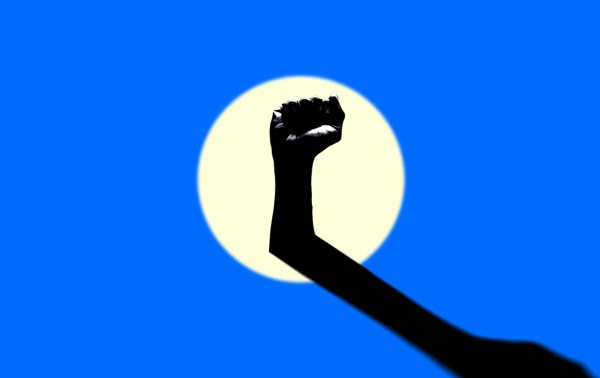Imagine I wrote a lengthy essay, with lots of footnotes, numbers, and interesting historical anecdotes, about the German economy from, say, 1932 to 1945. In it I’d make the case that German economic policies alleviated German poverty and improved infrastructure—gotta love that Autobahn!—and I’d argue Germany’s enlightened corporatist approach to industrial policy ensured full employment and real wage growth.
It wouldn’t be hard to write such an essay. Such a case can be made, particularly if you’re not fastidious about cherry picking your data and examples.
Now imagine you wrote that whole essay without once mentioning the Holocaust, slave labor, or Nazi expansionism. Call me crazy, but you might be open to the charge of missing the forest for the trees. Some might even accuse you of moral obtuseness—or worse.
I bring up this hypothetical because over at American Affairs, Arnaud Bertrand, a businessman living in China, has written a lengthy essay extolling China’s economic success story, “How China Defeated Poverty.” And, frankly, I find it an atrocious whitewash.
The inconvenient facts.
There was this thing called the Great Leap Forward. It was a program launched by Mao Zedong—the founder and longtime dictator of Communist China—to move China out of agrarian poverty and into industrial communism. Under the Great Leap Forward, millions of people died. Estimates vary from a very low 15 million to something close to 60 million. The Association of Asian Studies puts the number at 30 million in just two years (1960-1962). That’s an average of about 41,000 people per day. Most of those people starved to death. The Great Chinese Famine is generally regarded as perhaps the worst man-made disaster in all of human history.
Here’s how Bertrand describes it:
Mao Zedong laid the foundations for China’s subsequent increase in wealth. Though controversial, his land reforms—the process of expropriating landlords to bring all land in China under collective ownership—played a large role in paving the way.
Bertrand doesn’t mention any deaths. He doesn’t even use the term Great Leap Forward. The worst he says of Mao’s “land reforms” is that they were “controversial.” This is one of the most gloriously blood-soaked euphemisms and propagandistic understatements I’ve come across in my life. Again, imagine writing that hypothetical essay about the German economy and sweeping all of the horror into a rhetorical dustbin with, “Hitler’s reforms, though controversial …”
But let’s move on. You wouldn’t know it from Bertrand’s essay, but the Great Leap Forward wasn’t just a moral calamity, resulting in far more deaths than the Holocaust, it was an economic catastrophe. Per capita income in China fell by about 25 percent. The Great Leap Forward’s failure led to a brief loosening of collectivist policies that Mao soon saw as a threat to his hold on power, so he launched the Great Proletarian Cultural Revolution to purge “capitalist” and “bourgeois” thinking and replace it with Mao Zedong Thought (AKA Maoism). During the Cultural Revolution, Mao created bands of “Red Guards” who would enforce his ideological purges. Teachers were murdered by their students. Those deemed ideologically uncommitted were tortured or killed. Hundreds, perhaps thousands, of people indicted for “counter-revolutionary” thought or deeds chose to commit suicide rather than face “trial.” Estimates of how many died under this atrocity also vary wildly, from a low of 250,000 thought criminals murdered to 20 million. The average estimate among leading scholars is just under 3 million people liquidated. Mao shrugged off moral concerns with the bloodshed. “This man Hitler was even more ferocious. The more ferocious, the better, don’t you think? The more people you kill, the more revolutionary you are.”
Again, Bertrand mentions none of this. He basically yada-yadas past the entire Cultural Revolution, too. In Bertrand’s telling, China’s war on poverty is a story of consistent policymaking from its founding until present day. And it’s morally and intellectually repugnant.
After skipping all of this, Bertrand writes:
While Mao’s reforms established an important basis for China’s subsequent enrichment, it became clear to Chinese leaders at the end of the 1970s that China’s economy required opening up in order to “develop the productive forces,” as they put it. China’s leader Deng Xiaoping famously said in a 1984 speech:
“The superiority of the socialist system is demonstrated, in the final analysis, by faster and greater development of [the productive] forces than under the capitalist system. … One of our shortcomings after the founding of the People’s Republic was that we didn’t pay enough attention to developing the productive forces. Socialism means eliminating poverty. Pauperism is not socialism, still less communism.”
This is the only mention of Deng Xiaoping in the essay, which is kind of funny given that Deng was thrown in jail for being a closet capitalist during the Cultural Revolution (his oldest son was tortured and had an “accident” while in custody, “falling” out of a fourth-floor window). In 1961, Deng said at a conference, “No matter whether the cat is black or white, if it catches mice, it’s a good cat.” What he meant was that policies needed to work, even if they didn’t appear particularly communist. The priority was feeding the starving masses. It was for this kind of crazy talk that he was thrown in jail and then exiled to hard labor in the hustings. Deng was eventually “rehabilitated” and became the ruler of China and the first among equals among the butchers of Tiananmen.
What’s also amusing is that Bertrand pretends Deng’s turn toward markets to “develop the productive forces” of the Chinese economy was simply a consistent extension of Maoist policies. The only consistency between Mao and Deng was their shared willingness to kill people to maintain the CCP’s stranglehold on China.
But Bertrand is of course correct that Deng’s opening of the Chinese economy did make China vastly more prosperous, and I see no reason to quibble with his statistics.
But what is the lesson here? China switched to market incentives as a last resort. And when I say last resort, I mean a last resort. First, the CCP tried to collectivize its way to prosperity and killed tens of millions of its own people in the process. When that failed, they reluctantly switched to quasi-liberal markets and—boom!—hundreds of millions of people were lifted out of poverty.
And this is supposed to be a vindication of collectivism or statism? Really?
Authoritarianism’s amen corner.
I found the essay because Sohrab Ahmari and Adrian Vermuele recommended it on Twitter. This, too, is amusing to me. Why?
Where to begin? Both men have carved out a niche as critics of classical liberalism, market economics, corporate globalist hegemony etc. They have … complicated views on how religion, particularly Catholicism, should guide—or dictate—policymaking.
And here we have an essay that begins and ends with an appeal to the wisdom and authority of Enlightenment thinkers. Bertrand starts the essay thus:
Who wrote that the Chinese are “the wisest and best governed people in the world”? That they perfected “morality” as well as “political economy” to such an extent that “in those fields we need to be their disciples”?
Today such comments would be presumed to come from the worst kind of “China apologist”—a “shill”—at best deluded, at worst brainwashed. But the man who wrote those words is Voltaire, one of the fathers of the Enlightenment and, as such, a little bit of a father to us all, who live in the world the Enlightenment shaped.
And he concludes, after saccharine homage to Mao and China’s Confucian heritage:
These considerations should provoke further reflection. Are we ready, like our Enlightenment forefathers, to respect China as it is and accept their differences? Maybe even sometimes find inspiration in how they solve problems we too face? Or do we want to insist that they become like us? The answer to these questions, probably more than any other, will shape the rest of the twenty-first century.
A few quick points. It’s certainly true that Voltaire was a fanboy of the China of his imagination, much in the same way Bernie Sanders is obsessed with the Sweden of his imagination. But what Voltaire liked about China was that its imperial government was “atheistic” and—most importantly—free from the control of the “corrupt” Catholic Church. His fellow philosophe Denis Diderot admired China, too (though he thought it “stagnant” in the arts and sciences). That’s the same Diderot who is famous for the line that we will never be free until the last king is strangled with the entrails of the last priest (the actual quote is less pithy). Voltaire was less hostile to monarchs; he thought the Chinese emperor was the bee’s knees.
But why two famously Catholic critics of the Enlightenment project should admire an essay invoking the authority of anti-Catholic Enlightenment liberals is something of a mystery, at least at first blush. More on that in a moment.
Equally odd is thinking this “fascinating, learned essay” is so admirable when it rests on the—admittedly buried—premise that China’s success in alleviating poverty rests on its embrace of “neoliberal” policies and its entrance into the global trading order.
In fact, the curiosities never seem to end. China today persecutes Christians. Its leaders have edited the Bible to comply with communist dogma. The government surveils Christian leaders, occasionally disappearing them. With the shameful acquiescence of the Vatican, all Chinese Catholic bishops are essentially appointed by the Communist Party. More broadly, censorship in China makes Western controversies— bogus and legitimate alike—about “Big Tech” censorship seem almost quaint. Ahmari remains understandably furious about Twitter’s censorship of the New York Post’s Hunter Biden laptop story, but he thinks the prospect of China supplanting America as a global leader has much to recommend it.
And then there’s the fact that Bertrand is a tech entrepreneur living and working in China. I don’t know much about the guy, but surely there’s room for skepticism about his motives in writing a sycophantic apologia to an authoritarian police state. The mere fact that Bertrand skips past the regime’s myriad and manifest evils—past and present— to paint it as a loving enterprise dedicated to the well-being of the poor should invite questions.
I could go on, but there’s a larger point to be made. A lot of people, not just Ahmari and Vermuele, are remarkably selective in their moral outrage these days. Justin Trudeau is an authoritarian monster for dispersing a protest, but Vladimir Putin is just a strong ruler pursuing his interests. Don’t get me wrong, I think Trudeau has badly mishandled things, but I’m unaware of any standard of enlightened statesmanship that can cast him as a “totalitarian” and not indict Putin or Xi Jinping.
The nationalists spend an enormous amount of time explaining how nationalism is a cure-all and the highest, best expression of political organization. Okay. But the Ukrainian fight for national survival bores or confuses many of these people. “I don’t really care what happens to Ukraine one way or another,” the flailing nationalist J.D. Vance recently yawned. “Why would we take Ukraine’s side and not Russia’s side?” Tucker Carlson asked. “It’s a sincere question.”
Nations like Ukraine, Georgia, Tibet, and Taiwan are not threatened or oppressed by the amorphous tentacled monster of “globalism,” but by the actual tanks and ships of China and Russia. The threat of the EU’s metaphorical imperialism poses an existential danger to the Orban and Putin fans, but the very concrete threat of Russian and Chinese imperialism poses to our allies—and to the very idea of nation states—is only a concern in the context of dunking on Joe Biden, if it’s a concern at all.
The post-liberal cadres decry censorship and cheer not just mere religious freedom, but religious sovereignty in the political realm. Yet China’s religious persecution of Christians and its genocidal cruelties toward Muslims is a distraction because China has a purportedly laudable paternalistic concern with poverty?
I’m not saying all of the nationalists and integralists are passionately pro-China or pro-Russia. I’m saying that the bizarre inconsistencies in their arguments suggest that the only consistent theme I can discern is a strange obsession with American “decadence” and a stranger infatuation with power. How else to explain liking Bertrand’s essay, which, on its own terms, undercuts so much of what the integralists claim to believe?
The new post-liberal types don’t object to the state imposing values, censoring speech, or picking winners and losers in the economy in principle. They merely object to the fact that they’re not the ones doing it. Like Tom Friedman a decade ago, they look at undemocratic regimes riding roughshod over human liberty—and sometimes just plain humans—and think, If only we could do that. Of course, they’re not would-be murderers like those in Beijing in Moscow. But there’s just something about strong-willed rulers that is so seductive and exhilarating that leads them to yada yada past all the murder and yawn at the tyranny.







Please note that we at The Dispatch hold ourselves, our work, and our commenters to a higher standard than other places on the internet. We welcome comments that foster genuine debate or discussion—including comments critical of us or our work—but responses that include ad hominem attacks on fellow Dispatch members or are intended to stoke fear and anger may be moderated.
With your membership, you only have the ability to comment on The Morning Dispatch articles. Consider upgrading to join the conversation everywhere.